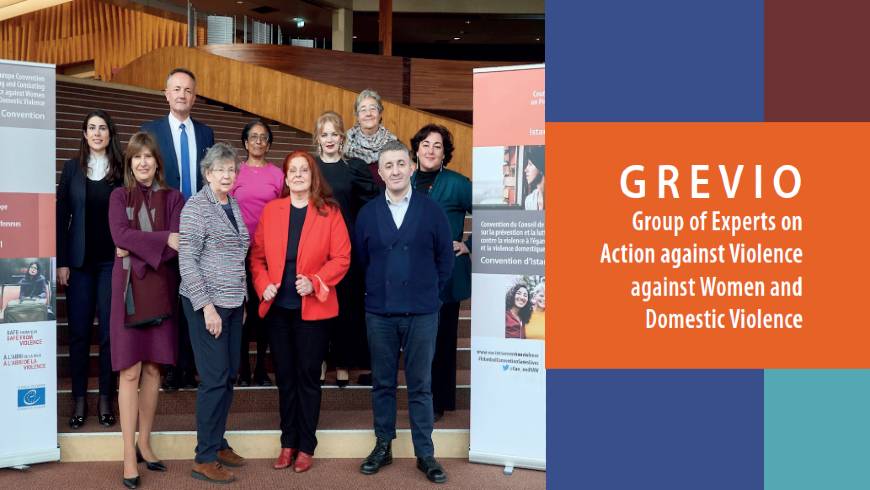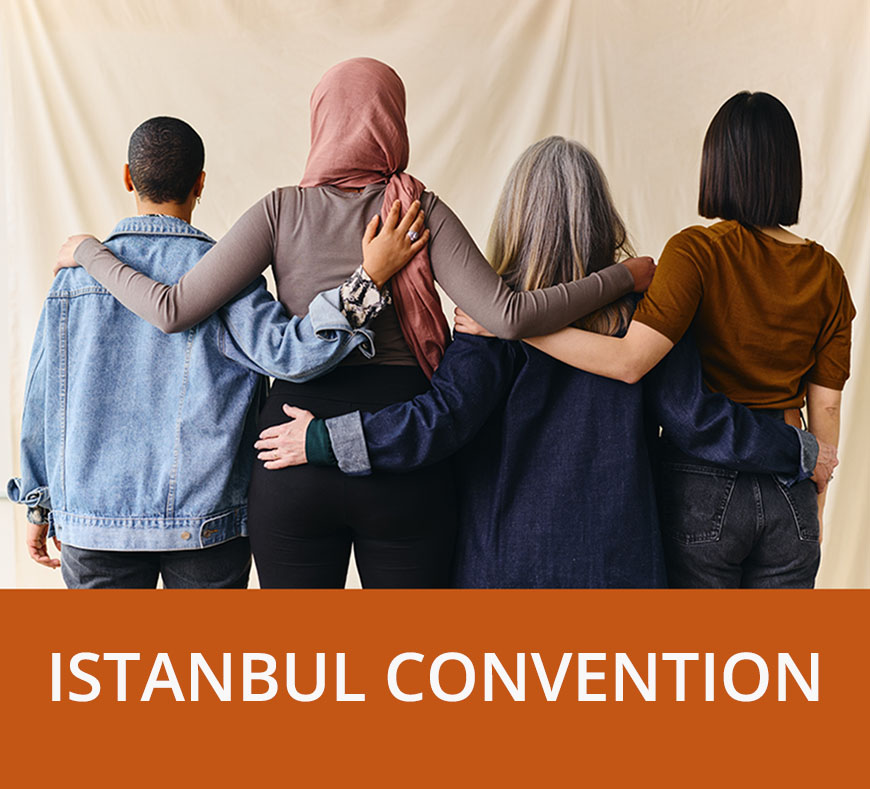The Council of Europe’s Group of Experts on Action against Violence against Women and Domestic Violence (GREVIO) finds that many countries lack enough protection for children and domestic violence victims. GREVIO, which monitors implementation of the Council of Europe Convention on Preventing and Combating Violence against Women and Domestic Violence (Istanbul Convention), has published an annual report today focusing on child custody, visitation and domestic violence drawn from its evaluations thus far.
Describing strengths and weaknesses in implementing treaty articles 26, 31 and 45 relevant to domestic violence victims and decisions made on child custody and visitation, the report shows that while all states parties to the treaty have taken positive steps, “the road ahead is long” because implementation has been too inconsistent. Women victims of domestic violence who leave their abusers often are confronted with threats of harm to their children, and the report notes an “alarming rate of homicides of both women and child victims, which are reported regularly in the media across Europe”.
GREVIO also highlights that many states recognise harm done to children who witness domestic violence and provide for the obligation to inform relevant authorities of suspicion or confirmed incidents witnessed by children, or where children have been direct victims of violence.
In Montenegro and Italy, for example, GREVIO observed that domestic violence in the presence of children entails aggravated sentences. In both Italy and the Netherlands, committing violence against women in the presence of a child is equated to a form of child abuse. In Andorra and Montenegro, witnessing such violence is considered tantamount to experiencing it directly and legislation calls for the same level of protection and support by statutory agencies. Andorran legislation defines women who have been the object of gender-based violence as well as their minor children as “victims”, and they can be granted social, psychological and medical support.
In Spain, GREVIO welcomed a recent change to Article 156 of the Civil Code that removes the requirement of both parents’ consent for psychological counselling and support for common children. The perpetrator thus can no longer prevent his children from attending counselling sessions – a frequent obstacle to children receiving psychological support. In another positive example (Denmark), the Danish Stalking Centre offers psychological support to children who have witnessed the effects of stalking. GREVIO also praised five state-funded Children Aid Centres in Poland, created in 2018 and run by the Foundation Empowering Children, which offer free-of-charge psychological, educational and legal support to abused children and their guardians.
Despite such progress, gaps remain, including the following examples:
Lack of provision of protection and support to child witnesses when violence occurs in the family unit: Despite well-established recognition of harmful effects of witnessing violence set out above, monitoring to date reveals that state parties to the treaty “mostly fail” to provide appropriate and sufficient access to specialised and age-appropriate services for children (in direct contravention to Article 26). In some countries, for example in Austria and Finland, such services are provided in shelters only, and only timebound – with the departure from the shelter entailing the termination of such essential specialist support. In the Netherlands, Portugal, Serbia and Sweden, while shelters support children accompanying their mothers, services are not specialised and tailored to address their specific needs.
Insufficient protection of domestic violence victims and their children: Under the Istanbul Convention, states shall ensure that instances of domestic violence be taken into account in deciding on custody and visitation. This can be done in several ways, for example by introducing legislation making it a legal requirement to do so, for example by screening custody cases for incidents of domestic violence or by ensuring information flows between the criminal and civil law sectors. However, in Albania, Belgium, Italy, Monaco, Poland, San Marino, and Slovenia, GREVIO found no explicit reference to domestic violence as a legal criterion to be considered when deciding on custody and/or and visitation rights. In France, Italy, Montenegro, the Netherlands, Portugal, and San Marino, GREVIO found that judges do not screen cases related to determining custody and visitation rights for domestic violence. Judges do not conduct risk assessments or ask for the disclosure of the risk assessment and safety plans drawn up by law-enforcement agencies and/or other competent stakeholders, with a view to taking them into account and determining the best interest of the child. In its report on Serbia, for example, GREVIO noted that legislation did not acknowledge the harm that witnessing domestic violence has on a child. In Poland, the harmful effect on children of witnessing such violence does not seem to be systematically considered in decisions on child contact.
Failure to ensure safe supervised visitation: States tend to give priority to maintain contact with both parents at all costs, regardless of witnessed violence. Shortcomings were observed in implementing Article 31 regarding facilities and personnel to enable supervised visitation. Several states parties including Andorra and France lacked the resources and infrastructure to ensure safe supervised visitation.
“Parental alienation” minimising evidence of domestic violence in civil proceedings: The minimisation of domestic violence within family court processes is closely linked to an increasing use of the concept of “parental alienation” to undermine views of child victims of domestic violence who fear contact with domestic abuse perpetrators, despite obvious risks for both adult and child victims. The report cites studies finding that claims of so-called parental alienation are being used to negate allegations of domestic and sexual abuse and that in many cases involving indications or findings of domestic abuse, these concerns ‘disappeared’ once the focus was on this concept.
3rd General Report on GREVIO's activities
Link to the news





